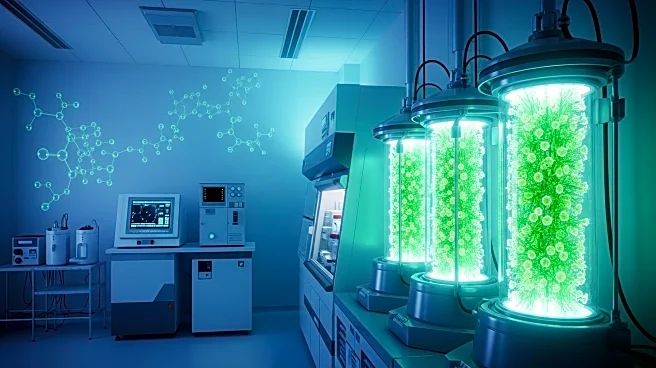What's Happening?
Dr. Reza Ovissipour, an Assistant Professor at Texas A&M University, is leading research efforts in cellular agriculture and food biomanufacturing to address global food security challenges. His work focuses on sustainable food systems, leveraging his expertise in Bioprocess Engineering and Biosystems Engineering. Dr. Ovissipour is a co-founder of the National Institute for Cellular Agriculture and collaborates with academic and industry partners to develop innovative food solutions. His research aims to train the next generation of professionals and commercialize novel food technologies that contribute to sustainable development. Dr. Ovissipour has been recognized for his contributions as an Editorial Board Member for Scientific Reports since 2025.
Why It's Important?
The research led by Dr. Ovissipour is significant as it addresses critical issues related to food security and sustainability. By focusing on cellular agriculture, his work has the potential to revolutionize food production, reducing reliance on traditional farming methods and minimizing environmental impact. This approach could lead to more efficient use of resources and help meet the growing global demand for food. The collaboration with industry partners also suggests potential for commercial applications, which could drive economic growth and innovation in the food sector. Stakeholders in agriculture, food production, and environmental conservation stand to benefit from these advancements.
What's Next?
Future developments in Dr. Ovissipour's research may include further collaborations with industry partners to bring these innovative food solutions to market. There is potential for increased investment in cellular agriculture technologies, which could accelerate the commercialization process. Additionally, training programs for professionals in this field may expand, fostering a new generation of experts in sustainable food systems. As these technologies evolve, they may influence policy decisions related to food security and environmental sustainability.
Beyond the Headlines
The implications of Dr. Ovissipour's work extend beyond immediate food production solutions. Cellular agriculture could lead to ethical shifts in how food is sourced, potentially reducing the need for animal farming and addressing concerns about animal welfare. Moreover, the focus on sustainable systems aligns with global efforts to combat climate change, as these technologies may reduce greenhouse gas emissions associated with traditional agriculture. Long-term, this research could contribute to a more resilient and equitable global food system.








